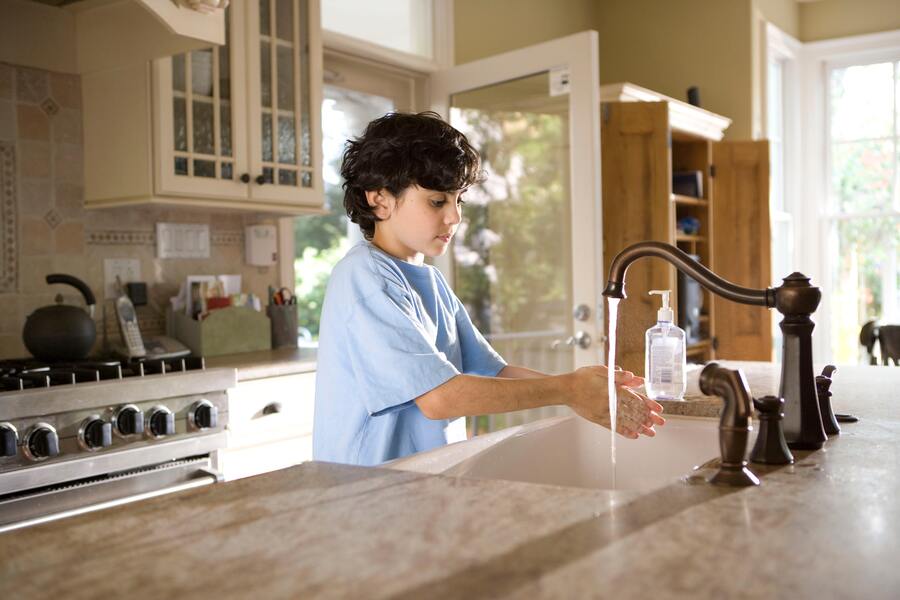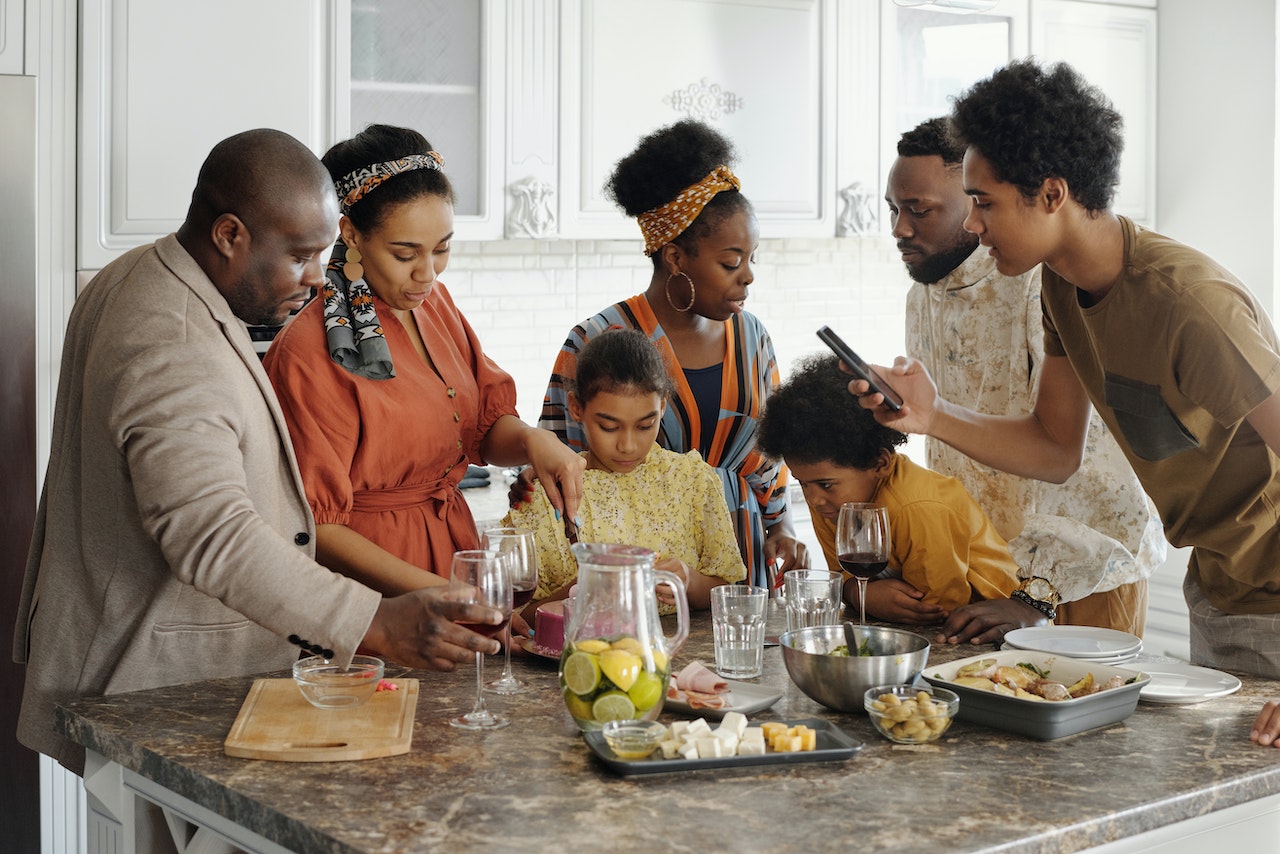From hurricanes and earthquakes to fires and floods, natural disasters can strike at any time. Children are often the most vulnerable group of people when exposed to dangerous situations. These scenarios can profoundly affect children’s mental health and impact their sense of safety and security.
Depending on the severity of the disaster, it may also affect their physical health, too. It’s important to educate and guide children through natural disasters to prepare them to handle scary situations. Read on to learn how you can prepare and protect children whenever a natural disaster occurs.
Climate Change and Natural Disasters
Climate change will produce many long-term effects on the planet and have significant negative implications for the lives of future generations. Warming temperatures, deforestation, and pollution contribute to more severe and more frequent natural disasters all over the world. Not only does this increase affect our planet, but it also has profound effects on mental health.
Eco-grieving or ecological grief refers to feelings of hopelessness, worry, and mental exhaustion associated with the repercussions of climate change. It may also cause feelings of profound loss and sadness over the extinction of species and the loss of beautiful, natural habitats.
Severe weather like drought, floods, and even famine will become more frequent and more powerful in many parts of the world due to climate change. Coping with eco-grief is essential and should include taking small steps to help improve our planet through actions like recycling, reducing the use of plastics, and limiting our carbon footprint. According to the World Meteorological Organization, natural disasters have increased five-fold due to climate change. Unfortunately, that number is likely to increase as time goes on.
Teaching Children about Climate Change
It’s important to teach kids about the science behind climate change. Here’s how you can help:
- Look for fun, interactive online games that teach young children how climate change affects our world.
- Talk to your children about how their personal actions can help to decrease carbon emissions. Start a family project such as a recycling day or beach cleanup so that kids can get involved.
- Implement sustainable routines daily so that protecting the environment becomes a daily part of life. Some examples include taking nature walks, learning about birdwatching, or volunteering to clean up litter in your area.
How to Prepare Your Home for Natural Disasters
Protecting children during a natural disaster includes making sure that your home is prepared. Here are some tips regarding the fundamentals of preparing your house whenever severe weather or a natural disaster strikes.
- Floods: If you have a basement, make sure it has a sump pump and is waterproofed. Keep electrical components and outlets elevated above possible water levels. Start an emergency kit that includes food, water, first aid, and medication if you need to evacuate. Install a water detection alarm, so you’re alerted when water reaches a certain level.
- Hurricanes: Come up with an evacuation route and agree on a meeting place with other family members. Make sure your roof and windows are in good condition during hurricane season. Use a solar-powered or hand-crank radio to keep up with weather alerts if the power goes out.
- Tornados: Devise a tornado emergency plan in advance and include your emergency kit. Teach your kids what a tornado is and what it will look like if one is near. Use your basement for shelter. If you don’t have a basement, go to the safest area in your home, like the bathroom or a closet, until the storm passes.
- Wildfires: Clear debris from the perimeter of your home and install walkways or driveways to serve as a fire break. Determine when you should leave and go to safety in the event of a wildfire. If possible, build your home with fire-resistant materials. A smoke alarm is essential to protect your family’s life from wildfires. Alarm systems use automatic functions to detect events that can cause a fire.
- Heatwaves: Stock up on ice and water before a heatwave strikes. Perform an inspection of your HVAC system and replace the filter every month. Install ceiling fans or floor fans and make sure plenty are available to keep you cool.
- Earthquakes: Install an earthquake alert app on your phone, so you’re aware of them as soon as they strike. Secure light fixtures and furniture so that they don’t fall or tip over during an earthquake.
- Blizzards: Keep a three-day supply of food and water in case a blizzard strikes. Stock up on thick blankets and cold-weather gear to keep your family warm. Consider getting a solar-powered generator to provide power in case it goes out during the storm.
Prepare Your Family for Natural Disasters
Prepping for a natural disaster ahead of time is the best way to help your children deal with unexpected events. Giving your children the survival skills they need will help them feel safer and gain a better understanding of when the event actually takes place. Talk to your children about handling different natural disasters and agree on a game plan that the family will stick to. Let your kids create their own emergency kit that includes some of their favorite toys and games.
Create a Disaster Plan
Creating a family disaster plan doesn’t have to be overwhelming. Here are some tips to help you prepare.
- Create a disaster supply kit that includes clean water, plenty of nonperishable food, a solar-powered radio, flashlights and batteries, a fully stocked first-aid kit, prescription medication, copies of essential documents, blankets, and hygiene supplies like soap and shampoo. Don’t forget to add some kid-friendly games and comfort items like their favorite toy or blanket. Remember your pets when making your kit, too.
- Devise a family plan that includes evacuation routes, meet-up locations, or safe rooms where you can hide until the disaster passes. Talk to the whole family and ensure that your plan meets everyone’s needs.
Talking to Children about Natural Disasters
Talking to your kids about natural disasters before they occur can teach them preparedness skills. It also empowers children so they feel more secure and have a sense of control.
- Always provide information that is clear, accurate, and age-appropriate. You should also explain why you’re talking about these issues to your kids so they understand the importance.
- Answer your child’s questions and listen to their concerns. Help them get involved in all of the preparedness tasks.
- Maintain a reassuring tone, and let your children know that there will be plenty of people there to help everyone during and after the crisis.
- Teach your children about the important roles of first responders, including police, firefighters, and medical professionals who are there to keep parents and children safe.
Protecting Children When Disaster Strikes
Here are some tips to protect your children when any disaster strikes.
- Tell your children to remain calm and listen to adults’ instructions during an emergency.
- Make sure that you reassure your children that everything will be ok so that they stay calm throughout the event.
- Stick to the emergency plan you came up in advance with so that everyone knows exactly what to do when disaster strikes. Practice your plan a few times so that everyone is prepared if they need to follow it.
- It’s important to know the process of evacuation and/or sheltering in place. Keep your evacuation route and meetup information handy, so you know where to go. Make sure that you keep a watchful eye on your kids and keep them on track when kids are involved.
- Use technology devices during emergencies like solar-powered radios, weather alert apps, and battery packs for your smartphone.
The Unique Needs of Children in Disasters
Children have unique needs, so it’s important to ensure their safety and well-being during a weather disaster.
- Make sure your baby is protected and fed during a disaster. Swaddle them in a blanket and keep them in a quiet place whenever possible. Make sure you have alternatives for feeding, including plenty of baby formula.
- Stock up your toddler emergency kit with your child’s favorite games and toys. Keeping toddlers engaged and distracted can help them cope with the experience more easily.
- Ensure that teens have a fully charged smartphone and a battery pack to stay connected. Talk to your teens throughout the event so that they stay calm and feel safe.
- If your teen or pre-teen isn’t home during a natural disaster, make sure you can contact them and direct them on what to do until the situation passes.
- Always pay attention to details like stocking up on medical equipment, medication, and other essentials when evacuating to a shelter.
Recovering After the Crisis
You can feel the effects of natural disasters for a long time after the event has passed. As communities clean up, rebuild, and restore services, there are many things that parents need to do in order to help their children recover until things return to normal.
Supporting Children’s Recovery
It’s essential to be flexible and creative as you help your children cope with the aftermath of a major storm or disaster.
- Remember to be present and take the time to talk to your children one-on-one. Kids must know you are there to listen to them whenever they feel afraid, have questions, or are concerned.
- Plan some fun activities and create special spaces where children can work and play together.
- Think about what your children say and make sure that you always help them feel validated when they express their feelings and talk about their experiences. You can use these conversations to remind your children to stay focused on the positive aspects of the disaster.
- Always keep your children’s mental health in mind after a crisis. If you need assistance, look for professional help if you and your family need it so you can cope and heal.
Disaster Assistance and Property Damage
- Check your property and evaluate any potential safety issues so they can be addressed before you return. Be on the lookout for things like gas leaks, broken glass, contaminated water, slippery floors, structural damage, and compromised electrical wiring, so everyone stays safe.
- Look for support for your children so you can get assistance after a crisis. FEMA has a helpful guide and resources if you need some help.
- You’ll need to contact your local emergency management personnel or file an insurance claim after a disaster so they can help you with recovery. Remember to take photos of your home and belongings, so you have a record of the damage. A home inspector can also help to assess the damage to your home.
While you can’t prevent natural disasters from occurring, you can be proactive so that your children and family are prepared. Remember these tips so that your kids understand what to do and how to cope when or if a natural disaster strikes. With proper preparation and compassion, your children will be able to deal with whatever comes their way safely and healthily.




